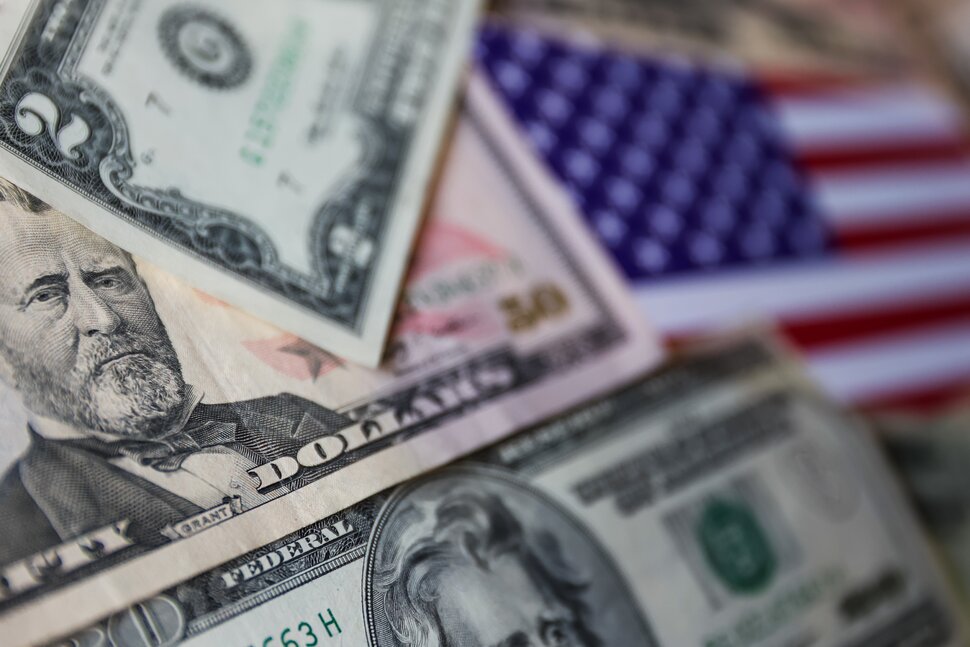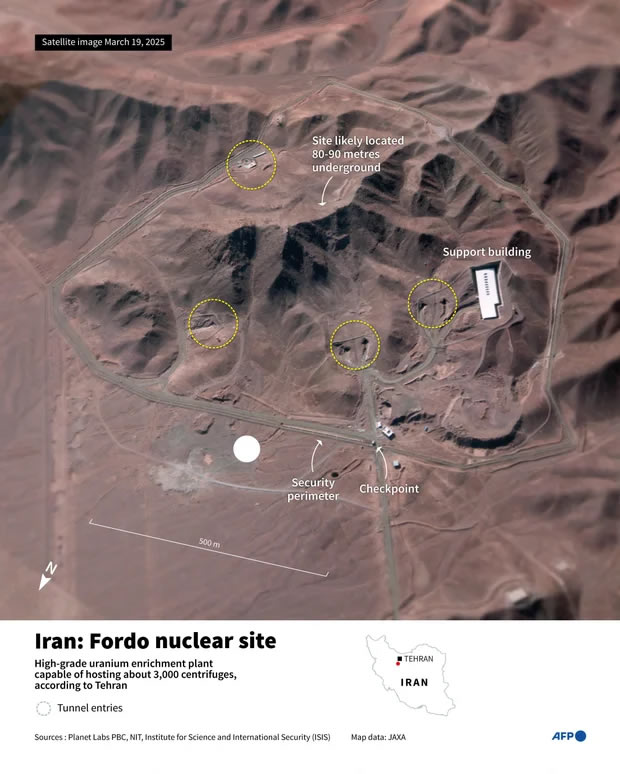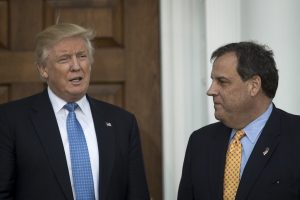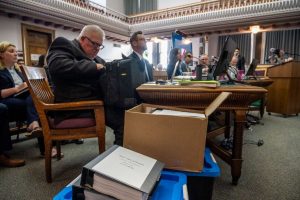When Republican Sen. Tim Scott of South Carolina announced his campaign for the presidency a month ago, he spent much of his speech detailing his background growing up as the child of a single mother in North Charleston.
What Scott did not do was talk much about the economy, briefly saying that President Joe Biden and the Democrats “have taxed, borrowed and spent billions and all they have brought us is crushing inflation” before returning to other themes.
Nikki Haley, the former South Carolina governor and U.N. ambassador for Donald Trump, did touch on the economy more in announcing her White House bid but framed it as harmful for mothers who were unable to find baby formula on grocery store shelves.
“Too many families are paying too much for groceries,” she said before pivoting to crime.
Of all the current Republican presidential aspirants, only former New Jersey Gov. Chris Christie and former Vice President Mike Pence have offered detailed proposals dealing with the economy. Both, surprisingly, have called for cuts or reforms to cherished entitlement programs such as Social Security, while Pence has also embraced the idea of balancing the budget.
In a recent appearance on CNBC, Christie said, “We have to look at things like means testing for the very wealthy [who] don’t need to get Social Security.”
“And secondly, for people in their 30s and 40s, we need to consider, you know, raising the retirement age,” Christie added.
Whit Ayres, a Republican pollster who is president of North Star Opinion Research, says that the two are challenging the long-held view that messing with Social Security – known as the “third rail” of politics – is a death knell for a candidacy. He mentions that Ronald Reagan was able to craft a bipartisan compromise to reform Social Security and then went on to win a second term handily.
“Everyone knows people are living longer and there are fewer workers,” Ayres says. “I admire someone who is talking about it honestly.”
The minimal focus on the economy so far might seem ironic, given that a year ago Republicans everywhere were railing on about “Bidenflation” and Democratic programs that spent trillions on infrastructure, green energy and other policies they branded as “socialist.”
But times have changed – and so has the economy. The recession that was predicted by an overwhelming majority of mainstream economists has yet to appear. Unemployment remains below 4% while the level of employment in the economy has surpassed pre-pandemic levels. The economy is now forecast to grow this quarter by 1.9%, according to the GDP Now model from the Federal Reserve Bank of Atlanta.
“The importance of the economy in politics goes up as the economy goes down and vice versa,” says Ayres. Ironically, it is President Joe Biden who is crowing about the economy and the millions of jobs created during his term, along with massive investments in infrastructure and manufacturing.
“We’ve created 13 million new jobs since I became president,” Biden said last week in a speech to union workers in Philadelphia. “That’s more jobs in a little over two years than any president has created in one four-year term. The unemployment rate is down to nearly a 50-year low at 3.7 percent. I’ve seen record lows for Black unemployment and Hispanic unemployment as well.”
“We’ve created 800,000 manufacturing jobs,” Biden added. “And as you heard me say before: Where in God’s name is it written that America can’t lead the world again in manufacturing?”
“Inflation has come down 11 months in a row and (is) going to continue to come down,” the president said. “Today, it’s less than half of what it was one year ago.”
Mark Zandi, chief economist at Moody’s Analytics, wrote an op-ed for CNN on Tuesday in which he dashed predictions of a recession. Zandi pointed to the strong labor market, resilient businesses and excess savings built up during the pandemic that are providing a buffer for consumers.
“Given history, there’s no shame in the consensus that we would follow a familiar recession pattern now,” Zandi wrote. “However, this time is different. Yes, the economy is fragile and vulnerable to losing the script. And goodness knows we have been off script more often than not in recent years. But odds are that we will buck history and avoid recession.
Gun Control and Gun Rights Cartoons

Further complicating the case for GOP presidential wannabes is that Republicans who control the House of Representatives and those in the minority in the Senate recently worked with Biden in a bipartisan fashion to pass a debt ceiling increase along with modest future cuts in spending.
“In essence, you’re criticizing your own party” if candidates attack House Speaker Kevin McCarthy and Senate Minority Leader Mitch McConnell, says Patricia Crouse, a political science professor at the University of New Haven. “I’m not sure you’re going to see the economy as a major issue during the primaries.”
There’s also the Donald Trump factor. The former president is tailoring his campaign to a revenge tour of attacks on the other candidates, the Justice Department that recently indicted him on multiple felony counts related to his handling of classified documents, and the mainstream media.
Other candidates are forced to address Trump, who leads in most polls, while also being careful not to alienate his die-hard MAGA base whose votes they need to place high in the primary pecking order.
Trump frequently refers to having presided over the “greatest economy” in history, a claim that is not borne out by the economic data. And even the stock market, a frequent reference point for Trump, is doing very well, the Dow Jones Industrial Average reaching a record high in January 2022 one year into Biden’s term.
Ron DeSantis, meanwhile, has focused his campaign on his accomplishments as governor of Florida, specifically his attacks on Disney and what he characterizes as the battle to defeat “woke” ideology. Once considered as the strongest challenger to Trump, DeSantis stalled with a poorly executed announcement chat on Twitter and awkward early meet-and-greets with voters. More recently, polls show him stabilized in a distant second place to the former president.
The emphasis on cultural issues such as abortion, education and sexual orientation should not come as a surprise, especially during the primary phase of the campaign, says University of Iowa political science professor Tim Hagle.
“You have to give the voters what they want,” Hagle says. “It’s not surprising we’re dealing with a lot of culture war issues – that’s the thing that gets people’s attention. That’s the thing that gets you clicks on the Internet.”
And it is clear that concerns about the economy, while still top of mind, have faded somewhat as the rate of inflation has come down and the labor market continues to create jobs.
A May poll conducted by Gallup found that Americans put “government” as the most important issue facing the country, at 19%, with the economy second at 13%. The poll was taken as Congress and the White House sparred over raising the debt ceiling.
Gallup’s Economic Confidence Index was unchanged in May, at -43, after dropping in April but is above the reading of -58 seen last summer when inflation peaked at 9.1%.
Among Republicans, the economy is the third mentioned problem after government and immigration. Democrats and independents alike place it second among their concerns.
Inflation specifically is the fourth problem for Republicans, third among independents and fifth for Democrats.
Political observers say the economy will be a main topic once the election moves beyond the primaries and into the general matchup between the two nominees.
But Crouse says that could prove difficult for the GOP candidate, given that they most likely will have been on record as supporting stringent restrictions on abortion, immigration and even cutting popular social programs.
“You can’t have these extremes in the general election,” she says. “That’s not where people are at.”
















+ There are no comments
Add yours